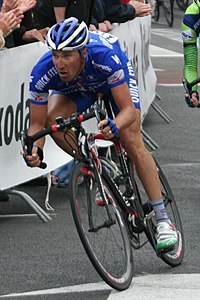Exercise physiology

Exercise physiology is the study of how our bodies react when we do physical activity like running, swimming, or playing sports. It looks at why our hearts beat faster, we breathe harder, and we feel tired when we exercise.
Think of your body like a car. When you want to drive your car, you have to put fuel in the tank. Your body is the same way! When you exercise, you use up energy stored in your body called glycogen, which is like the fuel in your car.
Your heart is an important muscle that helps move the blood in your body, like a pump. When you start exercising, your heart rate increases to pump more blood to your muscles. This helps your body get the oxygen it needs to keep moving.
When you exercise, your body uses up oxygen and produces carbon dioxide. Your lungs help you breathe in fresh oxygen and breathe out used-up carbon dioxide.
As you keep exercising, you might start feeling out of breath or tired. This happens because your body is working hard and using up energy. It's like a battery powering a toy: eventually, the battery runs out and the toy stops working.
In exercise physiology, scientists look at how different types of exercise affect your body, and how you can train your body to do things better, like jump higher or run faster.
So always remember, exercise is great for your body and helps keep you healthy and strong!
Think of your body like a car. When you want to drive your car, you have to put fuel in the tank. Your body is the same way! When you exercise, you use up energy stored in your body called glycogen, which is like the fuel in your car.
Your heart is an important muscle that helps move the blood in your body, like a pump. When you start exercising, your heart rate increases to pump more blood to your muscles. This helps your body get the oxygen it needs to keep moving.
When you exercise, your body uses up oxygen and produces carbon dioxide. Your lungs help you breathe in fresh oxygen and breathe out used-up carbon dioxide.
As you keep exercising, you might start feeling out of breath or tired. This happens because your body is working hard and using up energy. It's like a battery powering a toy: eventually, the battery runs out and the toy stops working.
In exercise physiology, scientists look at how different types of exercise affect your body, and how you can train your body to do things better, like jump higher or run faster.
So always remember, exercise is great for your body and helps keep you healthy and strong!
Related topics others have asked about:
